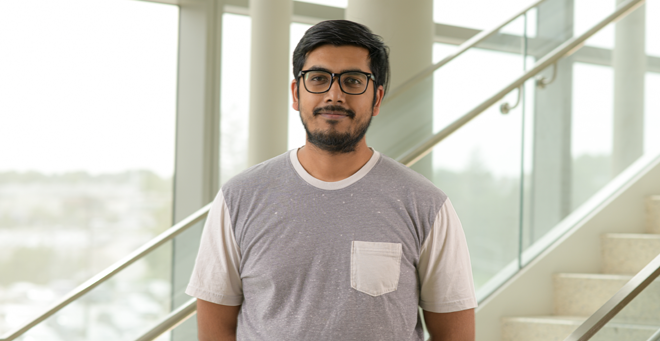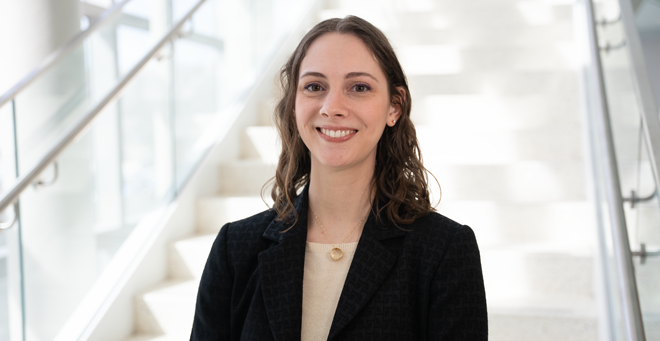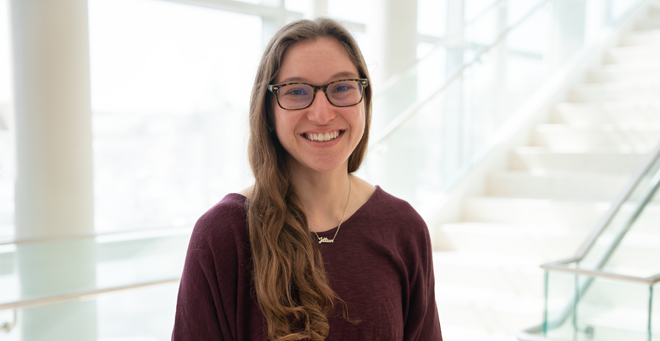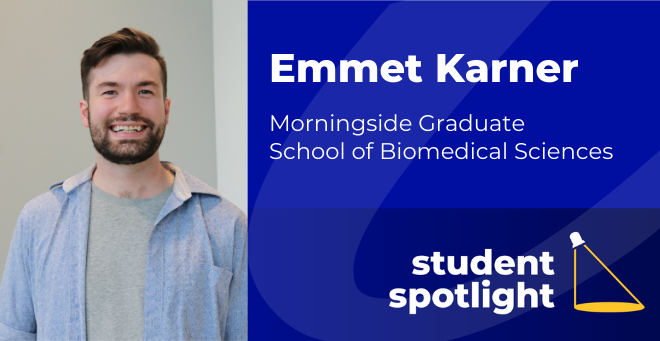
Ayush Kumar, an MD/PhD student at UMass Chan Medical School, has received a Ruth L. Kirschstein National Research Service Award from the National Cancer Institute to study triple-negative breast cancer, the most aggressive type of breast cancer and one that disproportionately affects Black women.
A number of breast cancer therapies target three receptors: those for the hormones estrogen and progesterone and for the protein human epidermal growth factor (HER2). Triple-negative breast cancer cells lack these three receptors, making targeted treatment more difficult.
“A lot of patients have relapsed despite aggressive radiation therapy. Hopefully through this project, we can identify how we can incorporate newer therapies to prevent that from occurring further,” Kumar said.
Kumar is a member of the lab of Arthur Mercurio, PhD, professor of molecular, cell & cancer biology.
“We’ve done a lot of work in identifying a receptor on triple-negative breast cancer called neuropilin-2 (NRP2) and we can design antibodies to block its binding with vascular endothelial growth factor (VEGF),” Kumar said. “By inhibiting the function of NRP2, we can actually induce radiosensitivity of the tumors. We’ve been able to establish how that antibody modulates the stress response of the tumor and reduce its growth upon radiation treatment.”
Last week Kumar was named one of five winners of the Lasker Foundation’s 10th annual essay contest. In his winning essay, published in The Journal of Clinical Investigations, Kumar shares the story of how a patient encounter challenged his understanding of patient consent for research.
Kumar decided to become a physician-scientist to have more clarity and understanding about patient needs. He grew up in Worcester, studied biomedical engineering and health care management at Washington University in St. Louis, and then came back home to contribute to scientific research.
“Ayush is an outstanding MD/PhD student who has the potential to become a superb physician/scientist,” Dr. Mercurio said. “His thesis project on novel mechanisms of resistance to radiation therapy in breast cancer meshes with his clinical interest in radiation oncology and it will provide a solid foundation for a career in academic medicine.”


